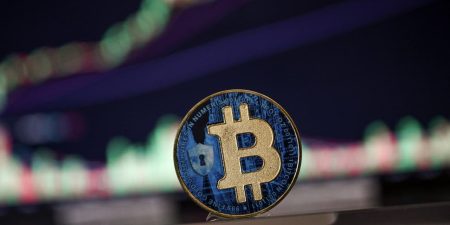By Iain Withers
LONDON (Reuters) – The yen slid against the dollar on Friday after a Reuters report that the Bank of Japan (BOJ) is leaning towards keeping its key yield control policy unchanged next week, ahead of a crunch run of central bank meetings that includes the U.S. and Europe.
BoJ policymakers prefer to scrutinise more data to ensure wages and inflation keep rising before changing the policy, five sources familiar with the matter said. The report added there was no consensus within the central bank and the decision could still be a close call.
The dollar was heading for its biggest one-day gain versus the yen since April, and was last up 1.3% at a nearly two-week high of 141.91. Prior to the report, the dollar had been up around 0.3% versus the yen.
Trade in the yen had been broadly subdued earlier in the session after data showed Japan’s core inflation rose to 3.3%, matching a median market forecast but remaining ahead of the BOJ’s 2% target.
Kenneth Broux, head of corporate research for FX and rates at Societe Generale (OTC:), said the sharp move in the yen on Friday might prompt Japan’s finance ministry to make further public comments to try to support the currency.
“It puts more pressure again on the ministry of finance,” Broux said, adding that the report echoed comments made by BOJ Governor Kazuo Ueda this week.
With inflation having exceeded the BOJ’s target for more than a year, markets have been simmering with speculation the central bank could tweak yield curve control as early as the July 27-28 meeting.
Japan’s benchmark 10-year government bond yield sank 5 bps to 4.1% on Friday, the lowest level since July 6, right before speculation for a hawkish tweak to policy this month began to ramp up. Earlier in the day, the yield had pushed as high as 0.48%, just 2 bps shy of the BOJ’s policy ceiling, and to the cusp of last Friday’s four-month peak at 0.485%.
Central bank meetings from Europe and the United States are also due next week, with investors parsing through data to better gauge the likely path of monetary policy.
The – which tracks the greenback against six major peers including the yen – was last up 0.3% on Friday at 101.040. The index was on track for a 1.1% weekly gain, its biggest rise in two months.
Data on Thursday showed the number of Americans filing new claims for unemployment benefits unexpectedly fell last week, touching the lowest level in two months amid ongoing labour market tightness.
Money markets are pricing in a 96% chance of a 25 basis point hike from the Federal Reserve next week.
“We could see the last rate hike in this cycle, but any dovish pivot seems far out,” Christian Scherrmann, U.S. economist at DWS, said.
The euro was broadly flat against the dollar at $1.11285, having dropped 0.6% on Thursday.
The European Central Bank is expected to raise interest rates by 25 basis points on July 27, according to all economists in a Reuters poll, a slight majority of whom were now also expecting another hike in September.
The pound resumed its slide versus the dollar and was last down 0.1% at $1.28580, despite bouncing earlier in the session on data showing UK consumer spending was stronger than expected in June.
The pound is on track for around a 1.8% weekly fall, its biggest since early February this year.
Read the full article here














